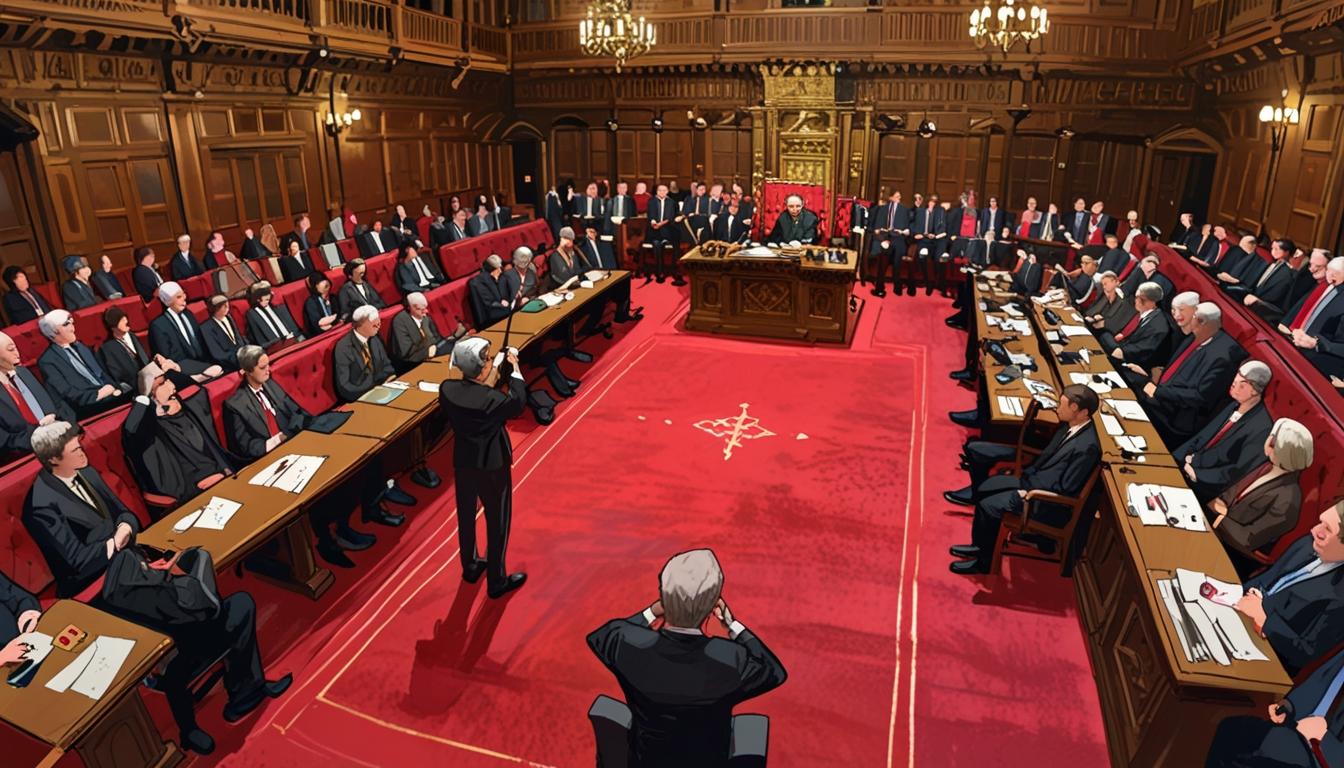Recent developments in the UK’s legislative landscape reveal a significant shift towards protecting the creative industries from the encroachment of artificial intelligence. The House of Lords has voted in support of an amendment to the Data (Use and Access) Bill, aiming to clamp down on what critics describe as 'theft' of intellectual property by big tech firms. This proposal is seen as a crucial step in giving artists, writers, and creators greater control over their work and addressing the potential risks posed by AI technologies that have been mining vast amounts of artistic material without proper compensation.
For years, tech companies have trained their models using a plethora of content, ranging from literature to music, often without consent from creators. The recent amendment, supported by a broad coalition of peers across various political parties, challenges the government’s previous stance advocating for a copyright exception that would favour AI companies. This coalition includes Tory, crossbench, and Liberal Democrat members, reflecting a growing consensus on the need for more stringent measures regarding copyright protection.
Baroness Kidron, a crossbench peer and director of the acclaimed film "Bridget Jones: The Edge of Reason," articulated the sentiments behind the amendment, stating, "We are not asking for special favours, simply that we provide transparency to stop the stealing of UK assets by offshore companies.” She underscored the significance of the creative industries, which contribute an impressive £126 billion to the UK economy, and urged the government to adopt the amendment or propose an alternative measure that ensures material transparency.
The Creative Rights in AI Coalition has echoed these sentiments, urging the government to heed the calls from the arts community. A statement from the coalition emphasised the importance of transparency in how creative works are being used by AI, framing the amendment as a necessary safeguard for the future of the UK’s creative landscape.
Concerns regarding AI's potential to exploit artists have been echoed by prominent figures such as Paul McCartney. The legendary musician has warned that AI could produce derivative works based on existing creations without compensating original artists, illustrating the risks through his own experiences with AI technologies. He has implored the UK government to reform copyright laws to ensure adequate protections for creators, rather than allowing tech giants to reap the benefits of their labour without due recognition.
The UK government's current approach aims to strike a balance between fostering AI innovation and safeguarding the rights of original content creators. Culture Secretary Lucy Frazer has acknowledged the importance of transparency in AI training processes, noting the government’s intention to implement rules that enhance visibility regarding how tech companies utilise creative works. However, details regarding the precise measures to be introduced remain sparse, leaving many in the creative sectors apprehensive about their rights.
Concerns have intensified surrounding proposed exemptions that would enable AI companies to use copyrighted materials unless creators actively opt out. Many organisations have unequivocally rejected this plan, asserting that existing copyright laws should be upheld. The Creative Rights in AI Coalition—comprised of numerous artists' organisations and media bodies—has called for strict adherence to copyright protections to avoid undermining the creative sector's integrity.
In a climate where the creative industries face significant threats from unregulated AI use, these recent developments signify a proactive approach by legislators. The amendment’s passage through the House of Lords represents a pivotal moment for artists in the UK, reigniting debates around copyright, ownership, and the ethical use of technology in creative fields. As the Bill heads back to the Commons, there is heightened pressure on the government to acknowledge and adapt to the concerns of artists, ensuring that the future of Britain's creative landscape is protected from the unchecked proliferation of AI technologies.
Reference Map
- Paragraphs 1, 2, 3, 4, 5, 6, 7, 8, 9.
- Paragraphs 4, 6, 7.
- Paragraphs 6, 8.
- Paragraphs 6, 8.
- Paragraphs 6, 8.
- Paragraphs 6, 8.
Source: Noah Wire Services
